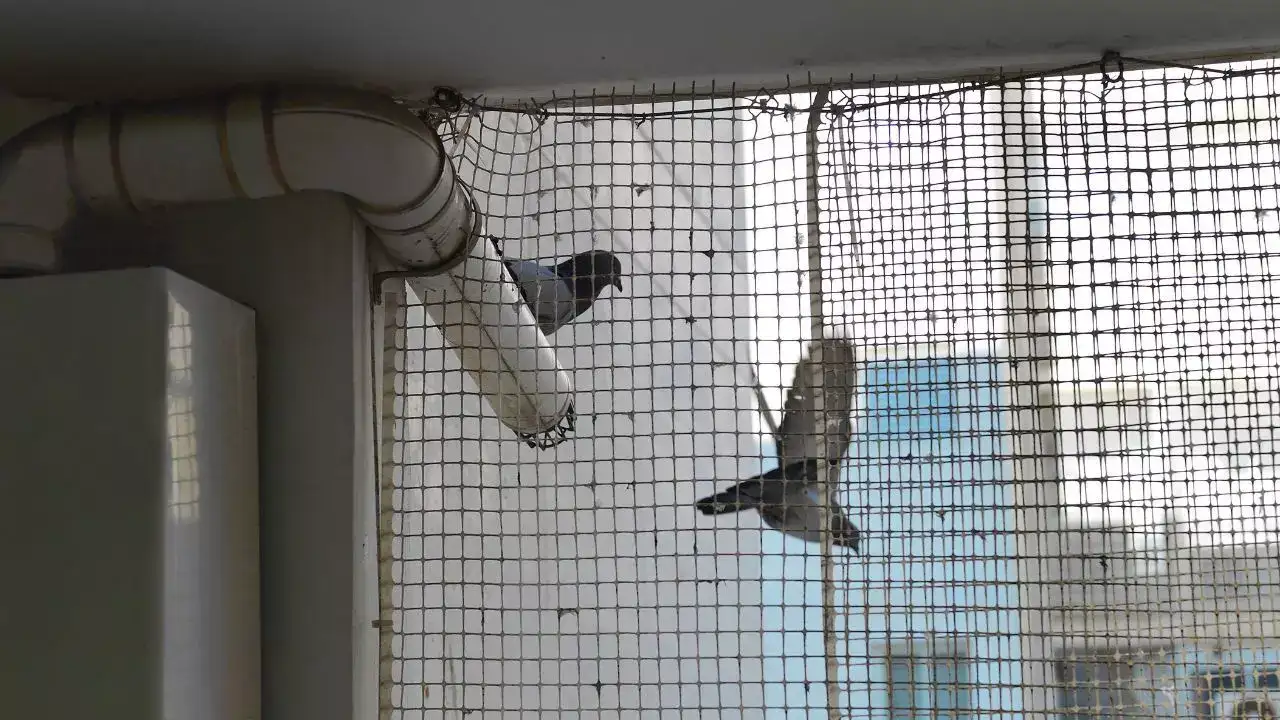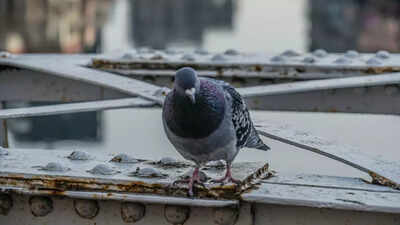Pigeons are a common sight in urban spaces, often adding life and movement to our surroundings. While they may seem harmless, their tendency to roost on balconies, window grills, and air-conditioning units can create challenges. Nesting debris, droppings, and feathers not only affect the cleanliness of your home but can also damage surfaces and pose minor health risks. Instead of resorting to harmful measures, there are simple, safe strategies to discourage pigeons from settling on your balcony. With a few thoughtful adjustments and gentle deterrents, you can protect your space while ensuring the birds remain unharmed.
7 safe ways to keep pigeons off your balcony without harming them
Keep surfaces clean and dry
Pigeons are attracted to areas that offer consistent food or water sources. Leftover crumbs, standing water from air conditioners, or damp surfaces can make your balcony an inviting place for them.Regularly wiping down railings, grills, and tiles, fixing leaks, and ensuring no water collects in corners can reduce the appeal. For an added measure, placing a small bowl of white vinegar in hidden corners can deter pigeons; the scent is unpleasant to birds but completely safe for humans and pets.
Install bird spikes
Despite the intimidating name, bird spikes do not hurt pigeons. These spikes simply make it uncomfortable for them to land on ledges, railings, or balcony parapets. Available in stainless steel or transparent plastic, they can be easily attached to narrow ledges, window grills, and even outdoor AC units.Bird spikes act as a harmless physical barrier, encouraging pigeons to search for alternative perching spots. Transparent versions are discreet and maintain the aesthetics of your balcony, while effectively keeping surfaces clean and free of droppings and nesting debris.
Use netting to seal off nesting spots

Pigeons favour sheltered nooks such as the underside of split AC units or the corners of balconies. Installing nylon netting across these spaces creates a firm barrier and prevents them from nesting.Professional installation is recommended to ensure the netting is taut and safe, avoiding any potential entrapment. For residents in high-rises, netting is particularly effective, as pigeons often prefer undisturbed upper floors.
Use reflective or moving objects as deterrents
Pigeons instinctively avoid unpredictable movement and light reflections. Hanging reflective objects, such as old CDs, shiny tape, or wind chimes, near railings or AC units can create a subtle visual deterrent.These items sway in the breeze and reflect sunlight, making the area less inviting for pigeons. Low-cost and easy to implement, this technique can also double as decorative elements. There are also purpose-made reflective discs designed for bird deterrence that are both functional and visually appealing.
Apply natural pigeon repellents

Strong scents such as clove oil, peppermint, and chilli extract can discourage pigeons from landing. Diluting essential oils with water and spraying them on balcony tiles, railings, or grills every few days can be effective.This method is safe for children, pets, and plants, and often leaves a pleasant aroma in your outdoor space. While results can vary, adjusting the concentration and frequency of application can help identify the most effective approach for your balcony.
Time your prevention with the nesting cycle
Pigeons breed year-round, but peak nesting usually occurs during spring and early monsoon. Installing deterrents like spikes, netting, or reflective objects before nesting begins ensures that birds are redirected without harming them.Once a nest contains eggs or chicks, displacing it can raise ethical concerns. Early preventive measures allow pigeons to find alternative locations naturally, keeping both the birds and your space safe.
Avoid feeding birds near home
Feeding pigeons may seem harmless, but in urban settings it encourages them to return frequently, often bringing additional birds with them. Leaving grains, crumbs, or stale bread on balconies signals a reliable food source, making your home a regular stop for pigeons.In addition to increasing droppings, feeding can contribute to overpopulation in dense areas and the spread of parasites such as Cryptococcus or Histoplasma. Limiting access to food sources encourages pigeons to seek sustenance elsewhere.The key goal is not to eliminate pigeons, but to create a balanced coexistence. Urban environments offer few undisturbed nesting sites, and our balconies often become unintended homes for these birds. With gentle, proactive measures like spikes, netting, reflective objects, natural repellents, and cleanliness, you can maintain a serene, sanitary balcony while protecting the safety and well-being of the pigeons. A little care and planning ensure your outdoor space remains pleasant and undisturbed, without causing harm to any creatures.Also Read: What do yellow stains on pillows reveal about your health and sleep










